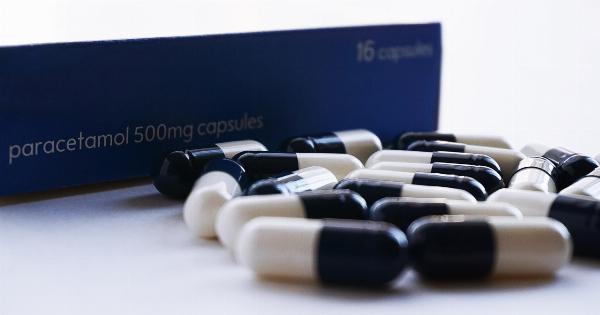Multiple sclerosis (MS) is a chronic disease that affects the central nervous system and causes a range of symptoms such as fatigue, muscle weakness, and numbness.
Over the years, the treatment for MS has evolved significantly, and innovative medications have been developed to manage symptoms and slow down the progression of the disease. In this article, we will explore the latest advancements in MS treatment and how they are revolutionizing the way we approach this condition.
Early Diagnosis and Treatment
One of the biggest challenges in managing MS is early diagnosis. The symptoms of MS can be quite vague and nonspecific, and it can take years for a definitive diagnosis to be made.
However, early diagnosis is critical in ensuring that treatment can be started promptly, as this can help to prevent further damage to the central nervous system. With advancements in diagnostic testing, such as magnetic resonance imaging (MRI) and cerebrospinal fluid (CSF) analysis, the ability to diagnose MS earlier has significantly improved.
Disease-Modifying Therapies
Disease-modifying therapies (DMTs) have been a game-changer in the treatment of MS. These medications work to slow down the progression of the disease and reduce the number of relapses. There are currently two types of DMTs that are available:.
Oral Medications
Oral medications such as fingolimod, teriflunomide, and dimethyl fumarate work to reduce the frequency and severity of MS relapses. These medications are taken by mouth and are easy to administer.
However, they come with potential side effects such as liver damage and increased risk of infection.
Injectable Medications
Injectable medications such as interferons and glatiramer acetate work to reduce the frequency of relapses and slow down the progression of MS. These medications are administered by injection and require a little more effort to administer.
However, they come with fewer side effects compared to oral medications.
New Therapies
In addition to DMTs, there are several other new therapies that have recently been approved for the treatment of MS. These include:.
Ocrelizumab
Ocrelizumab is a monoclonal antibody that targets B cells in the immune system. It has been shown to significantly reduce the number of relapses and slow down the progression of MS.
In addition, ocrelizumab is the first medication to be approved for the treatment of primary progressive MS, which is a rare and more aggressive form of the disease.
Fampridine
Fampridine is a medication that works by improving nerve conduction in MS patients. It has been shown to improve walking speed in patients with MS, which is one of the most common symptoms of the disease.
Siponimod
Siponimod is a medication that works by targeting a specific type of immune cell called a sphingosine 1-phosphate receptor modulator. It has been shown to significantly reduce the number of relapses in MS patients.
Alternative and Complementary Therapies
While traditional medications such as DMTs and new therapies offer effective treatment for MS, some patients may prefer alternative or complementary therapies. These therapies include:.
Acupuncture
Acupuncture is a form of traditional Chinese medicine that involves inserting thin needles into specific points on the body.
Some studies have shown that acupuncture may help to reduce MS-related fatigue and improve overall quality of life for MS patients.
Dietary Supplements
Dietary supplements such as omega-3 fatty acids and vitamin D have been shown to have potential benefits for MS patients. Omega-3 fatty acids may help to reduce inflammation in the body, while vitamin D may help to boost immune function.
Mind-Body Therapies
Mind-body therapies such as yoga and meditation have been shown to help reduce stress and improve overall quality of life for MS patients.
Conclusion
MS is a complex and challenging disease, but innovative medications and therapies are helping to revolutionize the way we manage this condition.
From early diagnosis to new therapies, there are many effective treatment options available to help MS patients manage their symptoms and slow down the progression of the disease. Whether through traditional medications or complementary therapies, MS patients have access to a range of treatments that can help improve their quality of life.






























